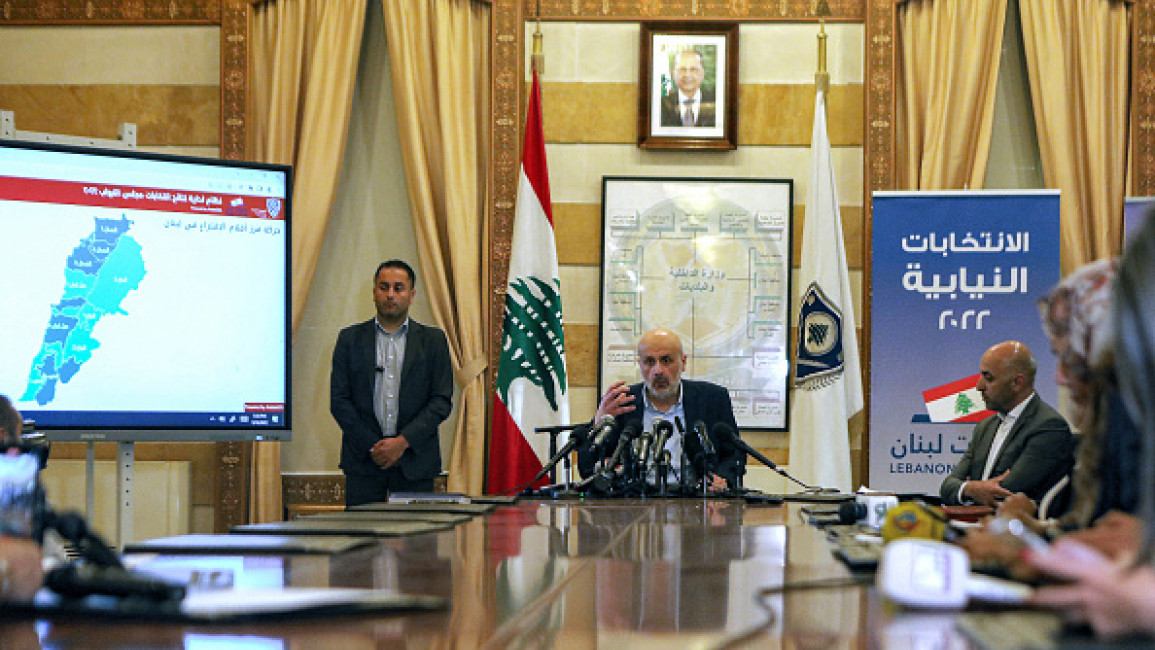Lebanon’s elections end in win for independents, loss for Hezbollah
Welcome to The New Arab's coverage of Lebanon's General Election 2022 held on May 15, 2022. Follow live updates, results, analyses, and opinion in our special hub here.
Lebanon’s pro-Hezbollah bloc lost its parliamentary majority in the 15 May elections, a final tally of the votes showed on Tuesday.
The weakening of the Iran-backed group’s control of the country’s parliament was mainly due to an upset victory for independent candidates and the Maronite Lebanese Forces (LF) party.
Thirteen independent candidates won seats, many of which ousted long-time establishment MPs from their electoral districts. Two independent candidates won in Lebanon’s south, an area which previously had been assumed to be comfortably under the thumb of Hezbollah and its ally the Amal movement.
At the same time, the LF and allied candidates won 22 seats, replacing Gebran Bassil’s Free Patriotic Movement (FPM) as the largest Christian bloc in the body. The LF has a long-standing enmity with Hezbollah and its Christian partner the FPM, and campaigned on confronting both political forces.
The makeup of the incoming parliament is up in the air, as the election upset has left little time for parties to start forming blocs.
Independent MPs, though their political ideologies run the gamut, have said they will act as one bloc. It remains to be seen whether they will ally with any other blocs, such as with the LF and their allies.
The new electoral makeup of the legislative body will be crucial in the six months, as MPs must appoint a new president in October, when current president, Michel Aoun’s term expires.
The new parliament must also elect a speaker of the house. Both the LF and independent candidates have expressed a desire to replace house speaker Nabih Berri, who has occupied the position for the last 30 years.
The turnout in Lebanon’s vote was low at just 41 percent, compared to nearly 50 percent in the previous election in 2018.
Election day was also marred by electoral violations, with observers decrying attempts at intimidating or influencing voters at the polls, as well as vote-buying schemes in the run up.
The EU’s electoral mission also noted that less than half of the polling stations in the country were accessible to those with limited mobility.
The new parliament has a host of challenges ahead of it. Lebanon is mired firmly in an economic crisis described as one of the world’s worst since 1850.
Over two-thirds of the population is in poverty and the country’s youth is emigrating in droves.
The national currency, already having lost over 90 percent of its value over the last two years, further plunged over the election weekend to trade at nearly 30,000 Lebanese lira to the dollar.
The new parliament will have to tackle these issues and make sorely needed reforms in order to negotiate a bailout with the IMF and access international financial aid.



